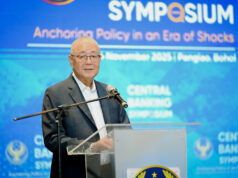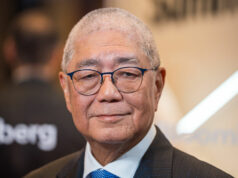PHL firms eye ASEAN’s last frontiers
By Denise A. Valdez
Reporter
PHILIPPINE conglomerates are watching out for opportunities in less developed but fast-growing Association of Southeast Asian Nations (ASEAN) members, drawn by the “unique needs” of these markets.
Gross domestic product growth projections of the Asian Development Bank, International Monetary Fund, the World Bank and the ASEAN+3 Macroeconomic Research Office for Cambodia, Laos and Myanmar have constantly rivaled or outdone those of the Philippines and Vietnam to lead the rest of ASEAN and much of Asia, while Myanmar — since February — has led Southeast Asian countries tracked by IHS Markit’s Purchasing Managers’ Index, dislodging the Philippines and Vietnam from the region’s helm in terms of manufacturing.
Following Ayala Corp.’s announcement of its $237.5-million investment in Myanmar’s Yoma Group two weeks ago, Aboitiz Equity Ventures (AEV), SM Prime Holdings, Inc. and Metro Pacific Tollways Corp. (MPTC) said they too have been on the lookout for opportunities in smaller but fast-expanding economies.
“We see the potential to add value in developing markets with unique needs,” AEV Chief Financial Officer Manuel O. Lozano said in an e-mail on Sunday.
AEV’s expertise in renewable energy, feeds and farms make it well-positioned to meet the needs of less developed countries like Myanmar where it can “build on these strengths” and “integrate towards the consumer such as moving from feeds to farms.”
“For power, we are exploring renewable energy opportunities in Vietnam, Indonesia and Myanmar,” Mr. Lozano said.
“We are interested in opportunities where we can participate in decision-making and operations.”
It is set to finish its acquisition of Vietnam’s Mekong Wind Pte. Ltd. by the end of 2019 and is doing a feasibility study with Indonesia’s SN Power & Energi Infranusantara for a potential 127-megawatt hydro project in Central Sulawesi.
For SM Prime, the property arm of the Sy family’s SM Investments Corp., Myanmar and Cambodia have been in its sights since 2017. Chief Financial Officer John Nai Peng C. Ong said in an e-mail on Tuesday last week that the company remains “open to opportunities coming from overseas projects.”
“We look for potential partners in the country that we want to invest and would make the project worthwhile. This way, the potential return on investments will be higher than the returns we generate in the Philippines… We go beyond being a passive investor as this is how we operate in the Philippines,” Mr. Ong said.
But for MPTC, the tollways unit of Metro Pacific Investments Corp. (MPIC), expansion in less developed emerging markets may not come anytime soon.
“Early this year, we looked at a toll road opportunity in Myanmar. However, after review of the terms, we felt that Myanmar is not yet ripe for us,” MPTC President Rodrigo E. Franco said in an e-mail on Saturday.
“We thought that the risks, resulting mainly from the country’s lack of PPP (public-private partnership) experience, are too much for us… The country needs to build its PPP credentials first in more manageable sectors like power generation.”
Mr. Franco said earlier this year that MPTC was looking at Myanmar and Laos as part of its pan-ASEAN strategy. Aside from the Philippines, it also has footprint in Indonesia, Thailand and Vietnam.
Despite being held back by concerns on PPP experience, Mr. Franco said less developed emerging markets remain promising. “A developer will have the opportunity to pursue high-impact projects that will significantly contribute to the economic development of the country. Returns to be generated will be appropriate to the level of risks being taken,” he said.
MPIC is one of three Philippine units of Hong Kong-based First Pacific Company Ltd., the others being Philex Mining Corp. and PLDT, Inc. Hastings Holdings, Inc., a unit of PLDT Beneficial Trust Fund subsidiary MediaQuest Holdings, Inc., has a majority stake in BusinessWorld through the Philippine Star Group, which it controls.
PNB Securities, Inc. President Manuel Antonio G. Lisbona said the attractiveness of less developed economies is rooted in the needs of these countries for the products and services of Philippine conglomerates. “As a whole, less-developed economies have more room to grow and the governments of these countries are more liberal since they want to attract investors to set up shop there,” he said in a text message on Friday.
At the same time, risks of investing in these countries cannot be ignored, Mr. Lisbona said, citing “differences in culture and norms, legal systems… likely not as good, political instability and fiscal position.”
Still, Managing Director Paolo Maximo F. Borromeo, who heads international strategy and development for Ayala, said the conglomerate is bullish on its latest foray.
“Myanmar is an under-penetrated emerging market in ASEAN with a promising growth story on the back of the government’s broad liberalization initiatives and its unique geographic location… [W]e believe it has many similar trends as the Philippines, particularly in terms of growing consumer demand and a young population,” he said in an e-mail on Thursday.
“We will remain open to forging other similar investments in the region with the right strategic partners, but will be very deliberate and selective in our approach.”



